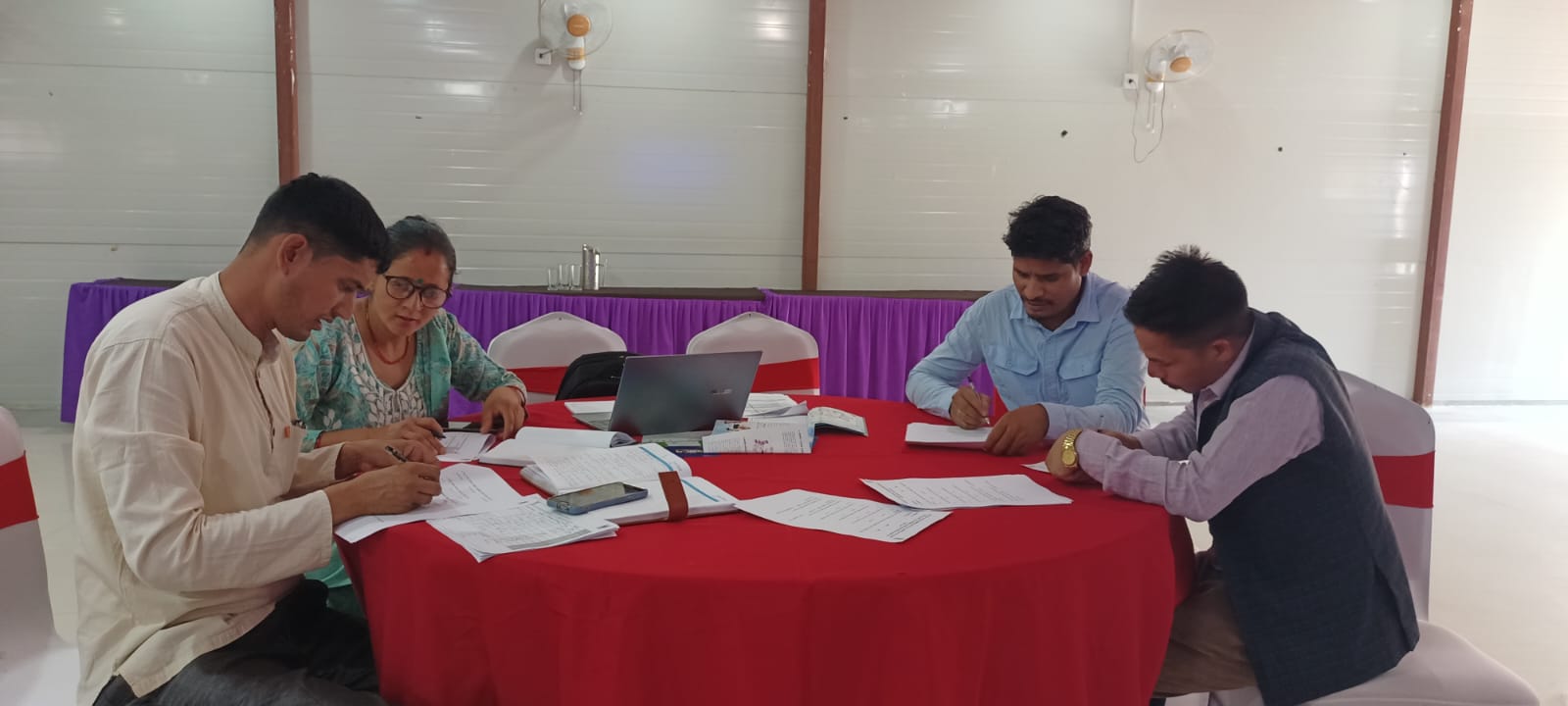
Posted On: 16th May, 2024
3 days Orientation to a local level official/Social mobilizer (CSO) on Child-Friendly Local Government, EWPN at Far Western Province
From May 14 – 16, 2024, NEEDS Nepal and SPCSN organized a three-day training event at Sitara Hotel in Chatakpur, Dhangadi, aimed at local officials and social mobilizers (CSOs) on Child-Friendly Local Governance (CFLG) and the Early Warning, Preparedness, and Response Network (EWPN) programs. This initiative aligns with Nepal’s commitment to the 2030 Sustainable Development Goals, particularly in enhancing social protection for children. Despite increased investments in social security, challenges such as child trafficking, early marriage, and caste-based discrimination persist, disproportionately affecting vulnerable girls. The training sought to address these issues by promoting effective CFLG, expanding child assistance programs, and ensuring policy revisions for gender equality and fairness.
The event commenced with an orientation session chaired by Mr. Bhavaraj Regmi, Executive Director of NEEDS Nepal, and attended by key officials, including Dr. Hari Prasad Lamsal, Chief Secretary from the Ministry of Chief Minister of Far Western Province. Discussions centered on providing comprehensive program documents to aid understanding among participants. Emphasis was placed on the importance of investing in youth, enhancing local government cooperation, and addressing issues such as child marriage, gender inequality, and domestic violence. Representatives from UNICEF, ILO, UNFPA, UN Women, and the EU presented various aspects of the EWPN program, while the Social Development Ministry of Far Western Province highlighted regional GBV initiatives.
On the second day, participants delved into the integration of children’s agendas into planning and budgeting. Mr. Prakash Acharya from UNICEF underscored the critical early years for brain development, advocating for significant investment in children during this period. Sessions covered child-friendly indicators, complaint hearing and management, and Shock Responsive Social Protection (SRSP), aiming to build resilience in vulnerable households. The training highlighted the importance of ensuring that children’s rights are integral to policy formulation and implementation.
The final day focused on practical applications, including the organization of child conferences and mainstreaming children’s agendas into governance. Participants shared insights gained from the CFLG program, emphasizing the importance of understanding CFLG indicators and good governance practices. Sessions also covered disability inclusion, public finance management for children, and citizen engagement policies. The closing session, led by Mr. Narayan Pandey, involved feedback from participants, underscoring the training’s success in enhancing their understanding and skills for promoting child-friendly governance.
Overall, the training facilitated a deeper comprehension of CFLG and EWPN principles, strengthened collaboration among local officials and CSOs, and empowered participants to implement child-friendly governance initiatives effectively. It also provided valuable guidance for monitoring and evaluating CFLG and EWPN efforts within local municipalities, ensuring that these initiatives lead to tangible improvements in child welfare and disaster resilience.